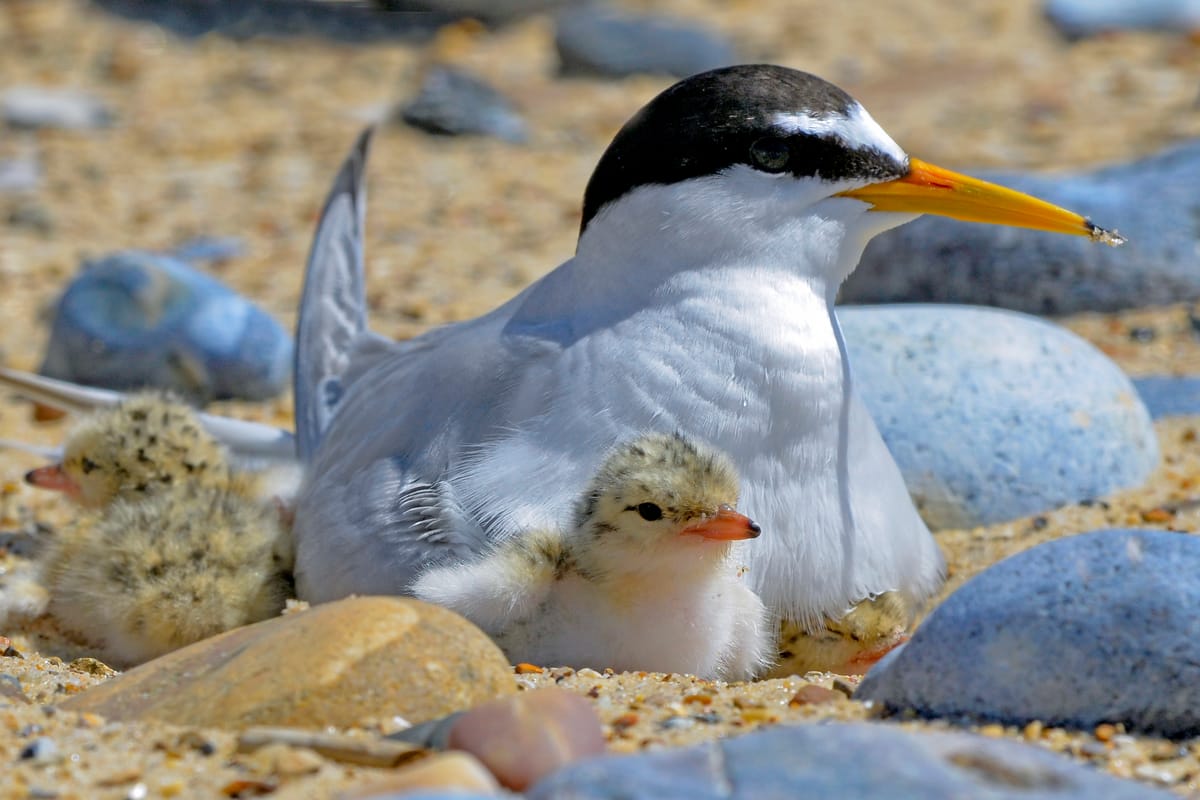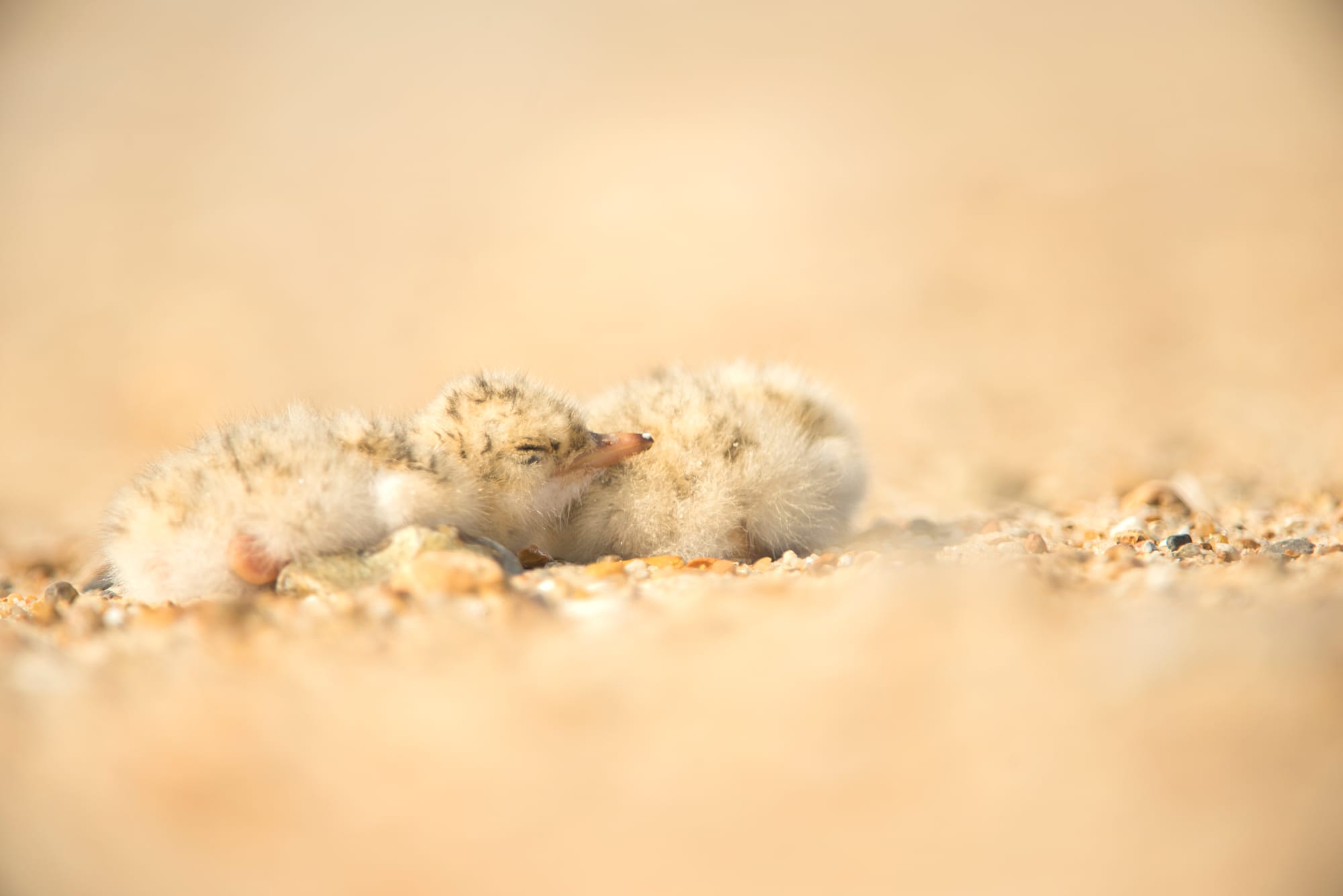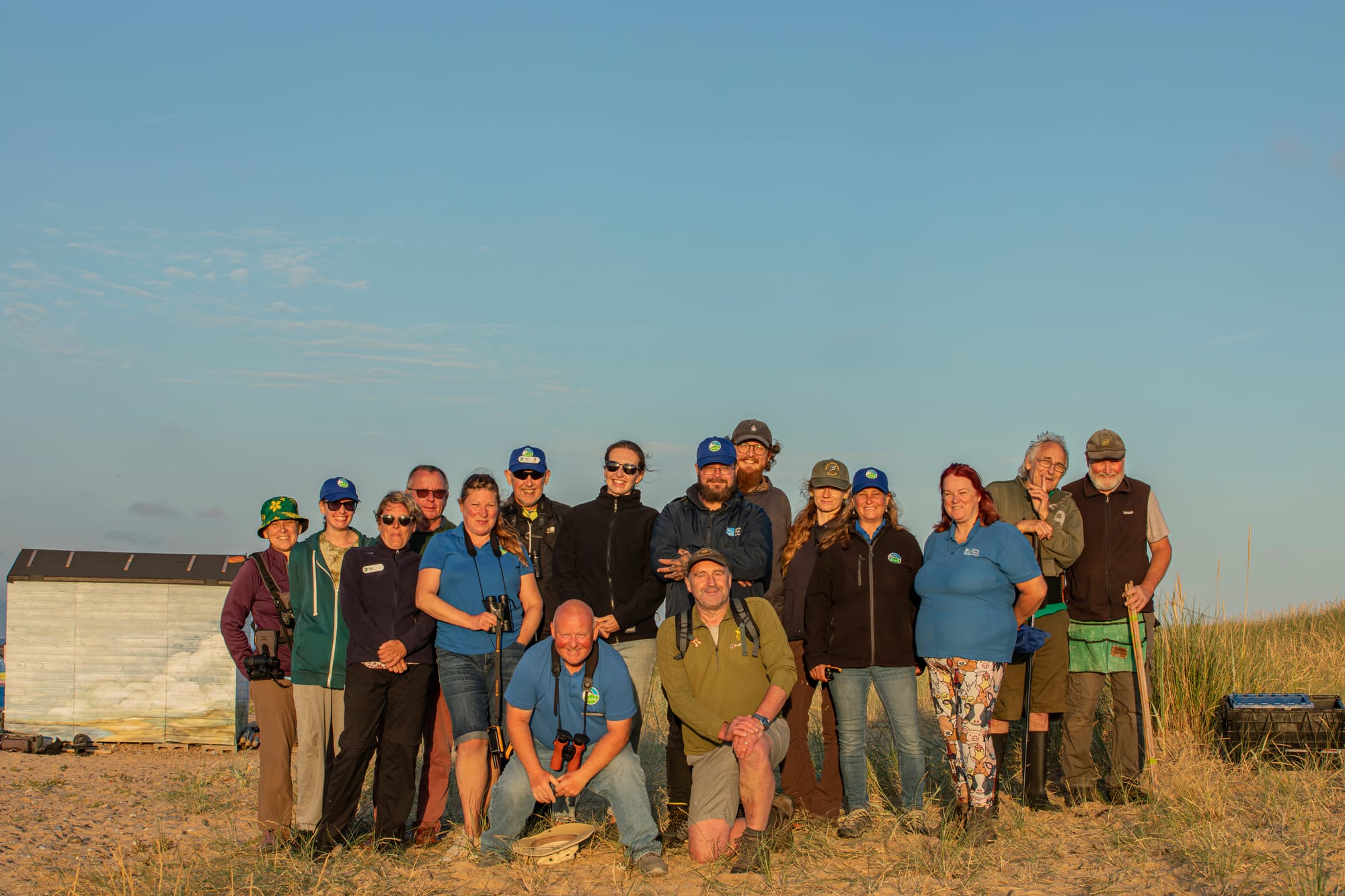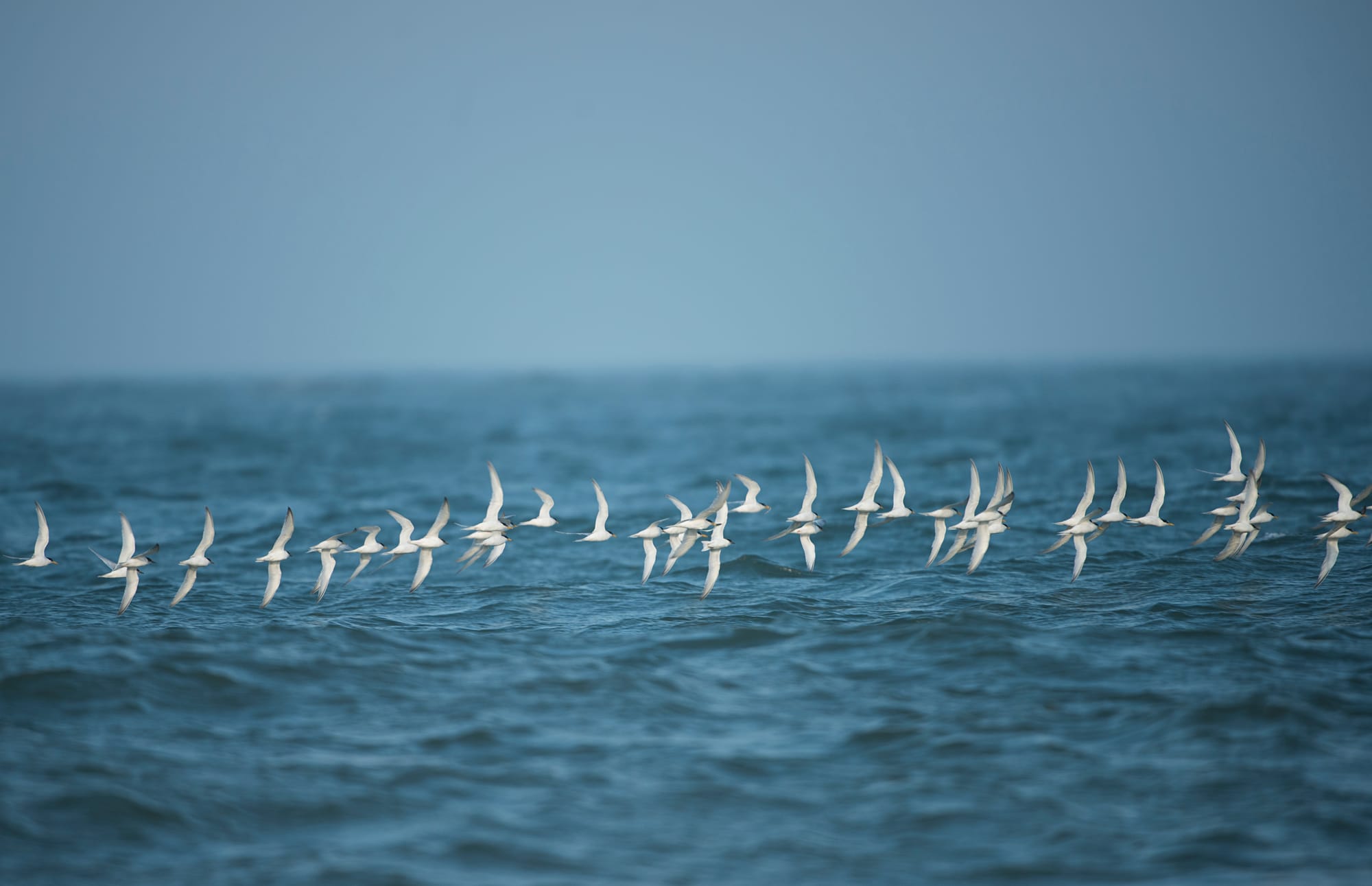Tiny Terns, Big Comeback: UK’s Daintiest Seabird Soars After Record Breeding Season

By Animals Correspondent
After decades of declines, one of the UK’s smallest and most threatened seabirds, the Little Tern, has continued to show signs of recovery after a successful 2025 breeding season at colonies across England.
Little Terns, which weigh less than a tennis ball and migrate thousands of miles from West Africa each spring, nest on sand and shingle beaches around the UK coast.

Their numbers have fallen by 39% since the 1980s due to loss of breeding habitat, disturbance, and predation, but recent conservation work is helping them recover.
This year, RSPB-monitored colonies from Dorset to Yorkshire saw promising results:
- Eccles in Norfolk, part of the RSPB-led Beach Nesting Birds Project in Norfolk, had a standout year with 455 Little Terns fledging, up from 319 chicks across the whole of East Norfolk in 2019 and the highest number since Little Terns started nesting there in 2002.
- Beacon Lagoons on the Humber Estuary, led by Spurn Bird Observatory in partnership with the RSPB and other local partners, saw the highest number of breeding pairs in over 50 years (105) and 110 chicks fledging.
- The RSPB’s Pagham Harbour in West Sussex had 21 Little Tern chicks fledge, up from 0 in 2024.
- Chesil Beach, Dorset, where the RSPB leads on the Chesil Little Tern Recovery Project, saw its fourth consecutive productive year with at least 39 chicks fledging. This is a major increase from just three fledged in 2021.
These successes come after years of decline, due to threats including loss of safe places to breed, increasing recreational disturbance, coastal development and predation.
Thanks to long-term conservation partnerships, beach-nesting birds are showing encouraging signs of recovery, and across the England Little Tern numbers have risen by 6.7% since 2019.

Since 2014, partnership projects such as the Little Tern LIFE Recovery Project, Solent Seascape Project, and LIFE on the Edge have worked with reserves focusing on enhancing and restoring nesting habitats, improving predator management, and engaging local communities to reduce disturbance.
Nationally, in collaboration with Natural England and others, the RSPB is delivering a Beach Nesting Bird Programme to protect these sites and secure the future recovery of Little Terns and other beach nesting species such as Ringed Plover and Oystercatcher.
Chantal MacLeod-Nolan, Seabird Project Recovery Officer from the RSPB, said: “Little Terns were in a downward spiral for years, so it’s wonderful to see early signs that they might be climbing back. It’s not all smooth sailing from here, especially with the potential for them to be hit by evolving threats such as avian flu, but it’s really encouraging to see these amazing birds improving when given the right protections.
"None of this would be possible without the incredible dedication of volunteers and local communities, so a huge thank you to everyone for getting involved and helping to protect the internationally important wildlife that is nesting on our doorsteps.”
The news comes just after World Migratory Bird Day on 11 October, which highlights the global journeys of species such as the Little Tern and the importance of protecting the coastlines they depend on.

England’s East Coast Wetlands — stretching from north Norfolk to Lincolnshire — were added to the UK’s Tentative List of World Heritage Sites in 2023 in recognition of their international significance for migratory birds.
If you have a positive story or uplifting news to share, we’d love to hear from you!
Just email us at news@goodnewspost.co.uk.
Whether it's a local hero, an act of kindness, or a personal win, your story could help spread joy and improve someone’s mental health. Let’s make the world a little brighter, one good news story at a time.
And don’t forget—you can sign up for free to get the latest feel-good stories straight to your inbox!





